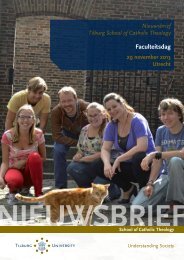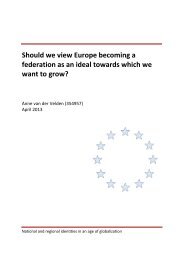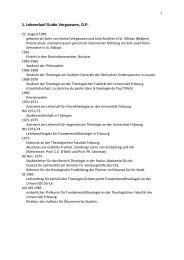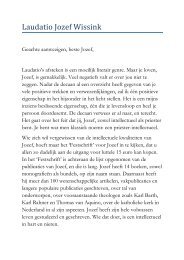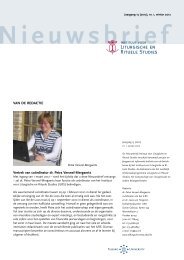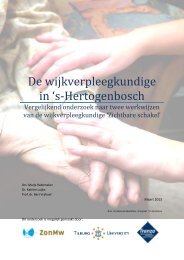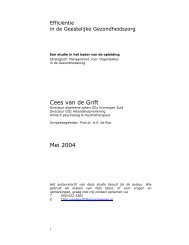Here - Tilburg University
Here - Tilburg University
Here - Tilburg University
You also want an ePaper? Increase the reach of your titles
YUMPU automatically turns print PDFs into web optimized ePapers that Google loves.
Author and presenter<br />
Kruyen, Peter M.; <strong>Tilburg</strong> School of Social and Behavioral Sciences<br />
Title<br />
Test length and decision making: When is short too short?<br />
Abstract<br />
To efficiently assess multiple psychological attributes and to minimize the<br />
burden on patients, psychologists increasingly use shortened versions of existing<br />
tests. Meanwhile, the importance of psychological testing has increased. For<br />
example, patients are routinely measured to monitor their progress in the course<br />
of a therapy and to evaluate treatment programs. These measurements are not<br />
only used to evaluate changes in the individual patient, but they are also used<br />
by insurance companies to make financial decisions on whether or not to<br />
reimburse certain treatment programs. However, the shortened tests are less<br />
reliable compared to long tests and may therefore substantially impair reliable<br />
decision-making.<br />
In this study, we reviewed recent trends in the use of short tests and<br />
examined the impact of test length reduction on individual decision-making.<br />
First, we present the results of a literature review on the use and validation of<br />
abbreviated tests in psychology. Second, we present the results of simulation<br />
studies comparing the risks of making incorrect decisions for the long and<br />
abbreviated tests. These simulations showed that the number of items needed to<br />
take decisions about patients depends on various factors including the<br />
application envisaged. For some applications five to ten items are sufficient,<br />
whereas in other applications one needs at least twenty items.




